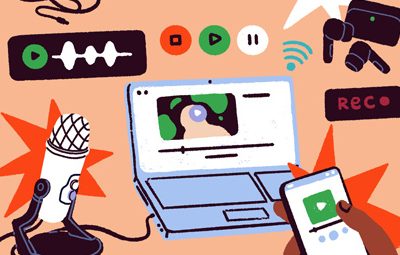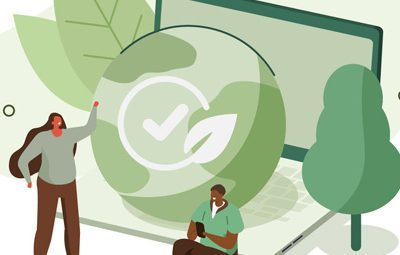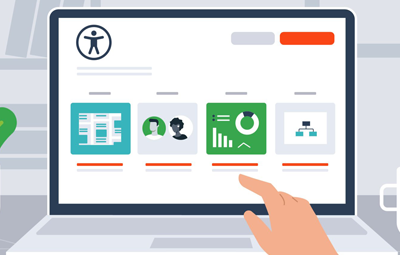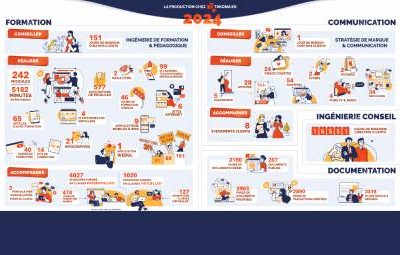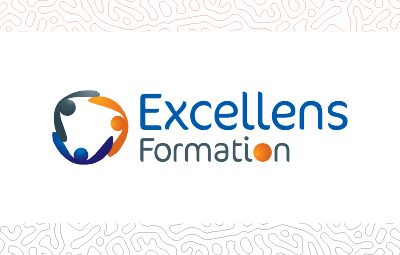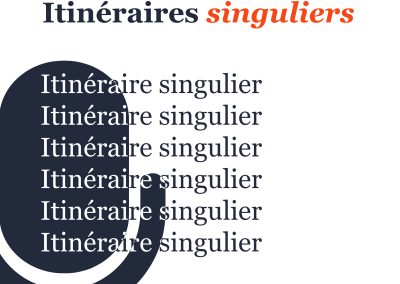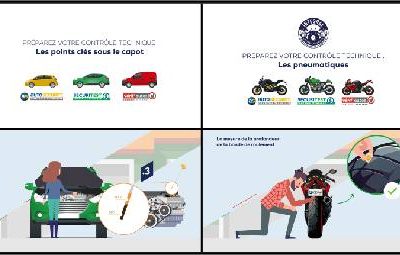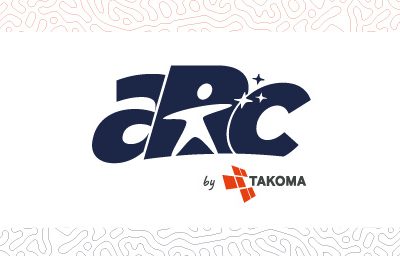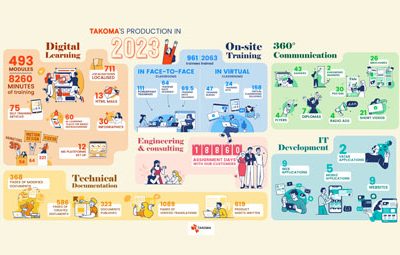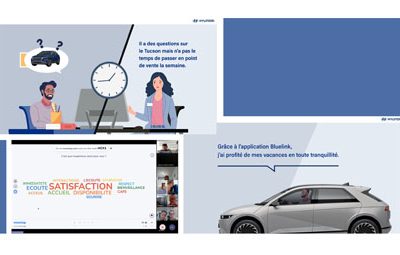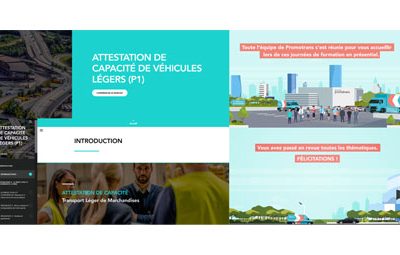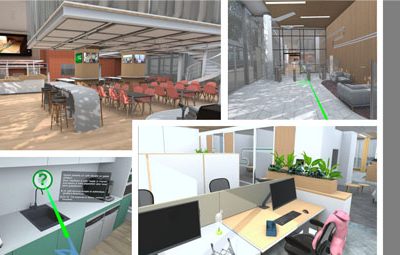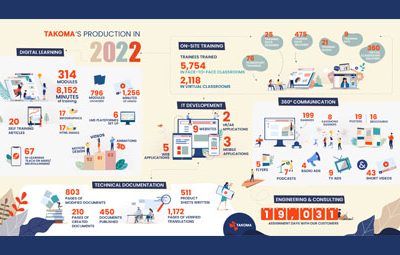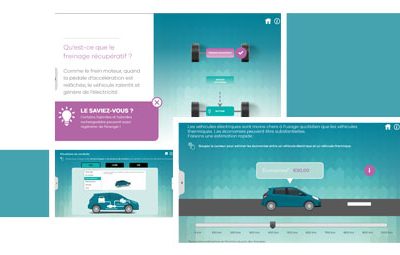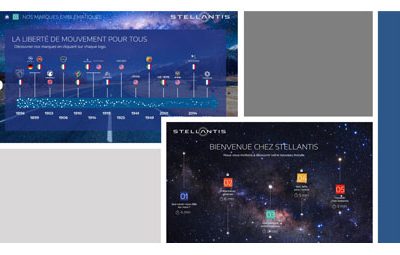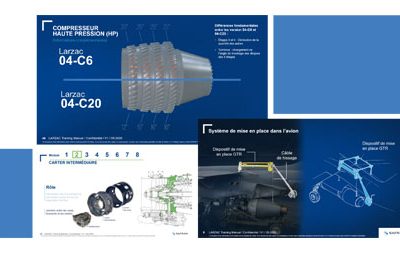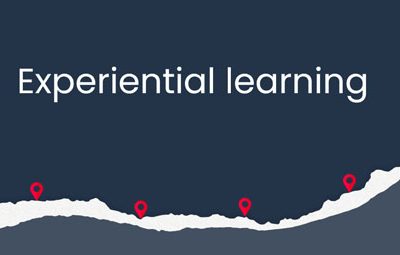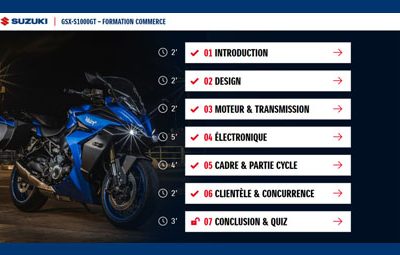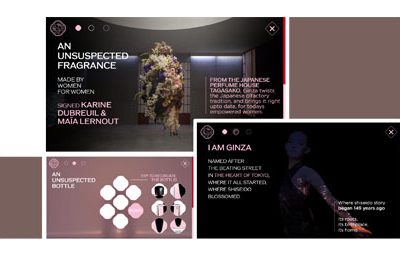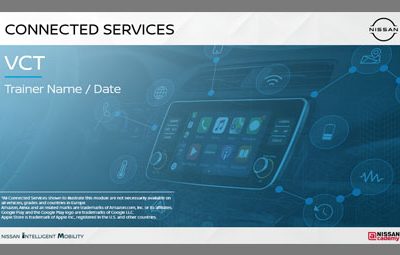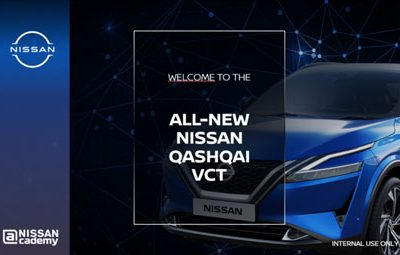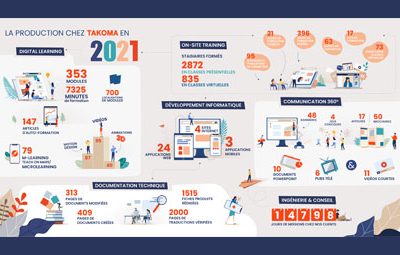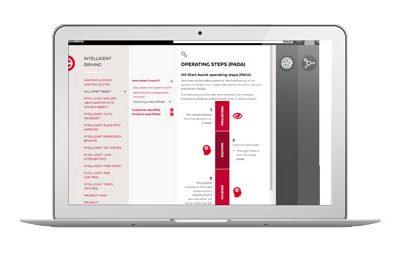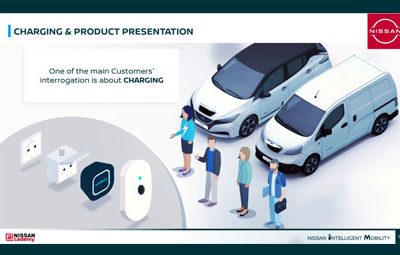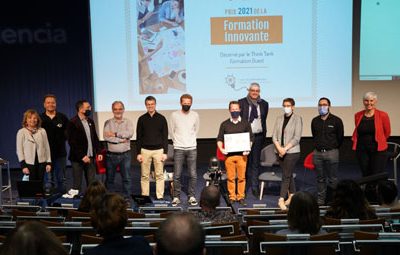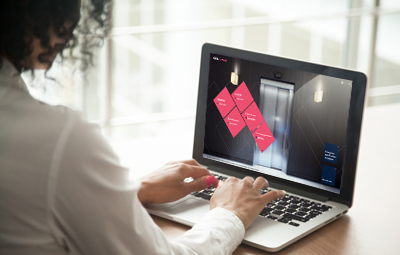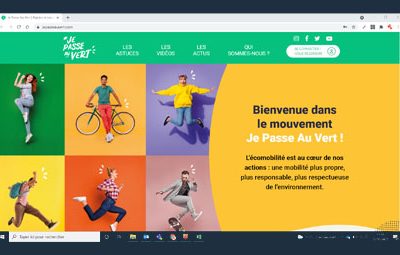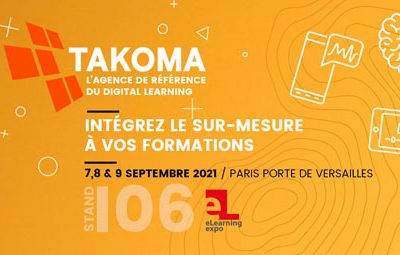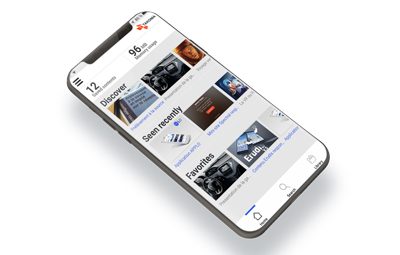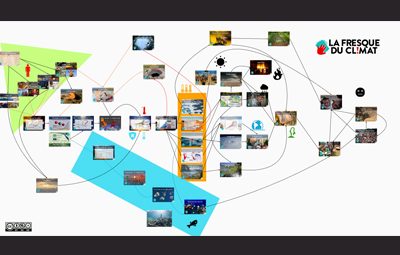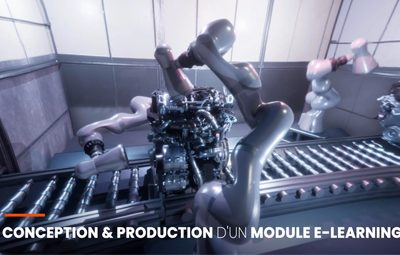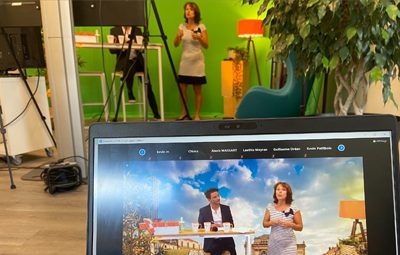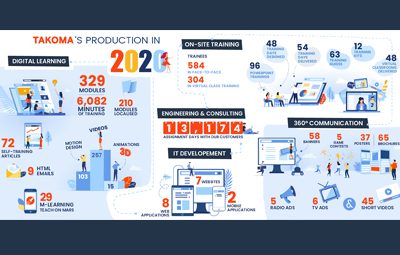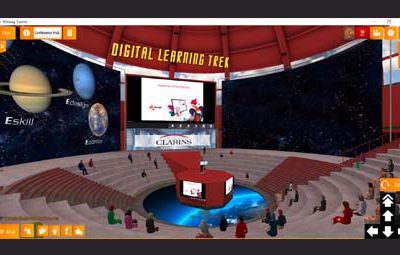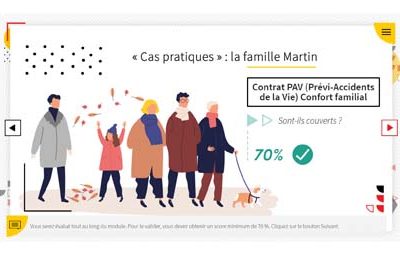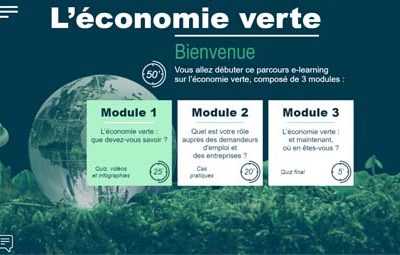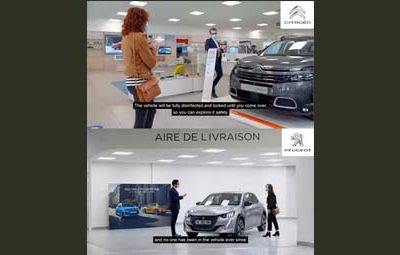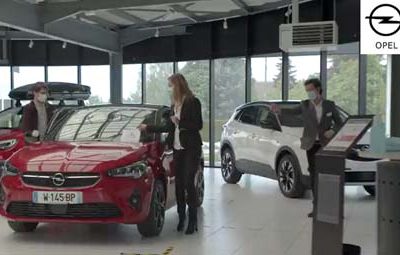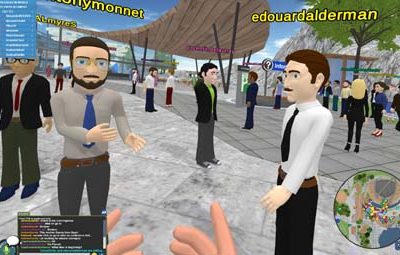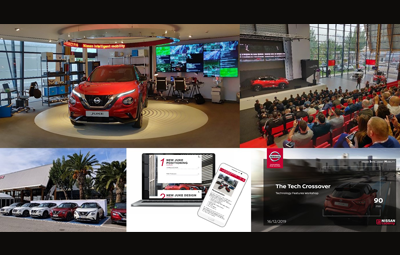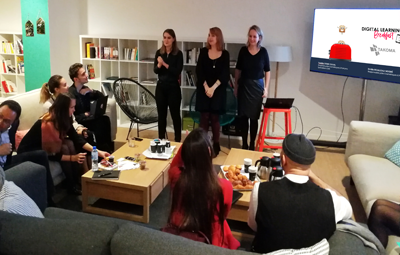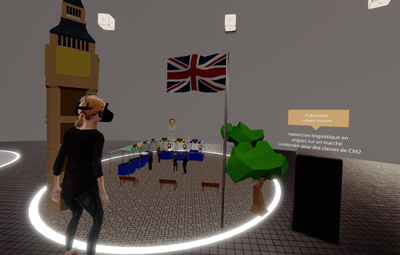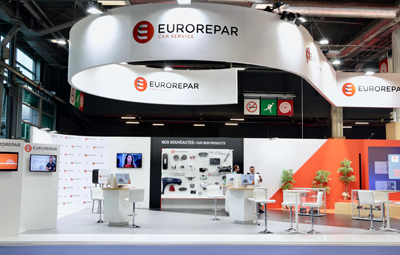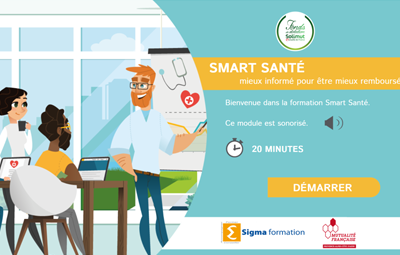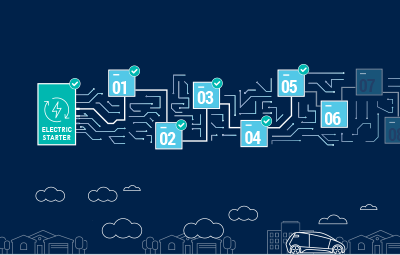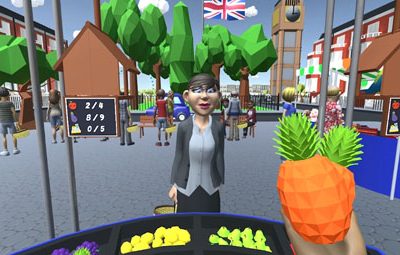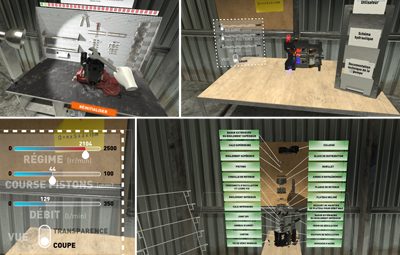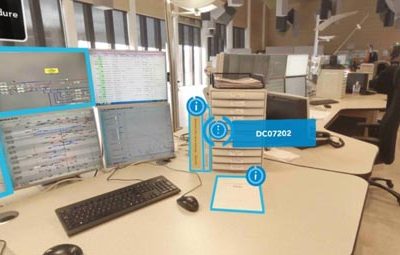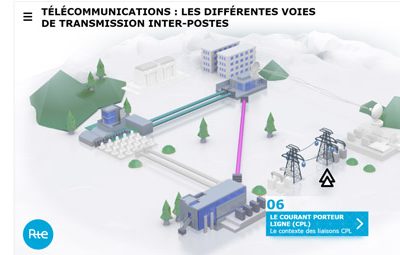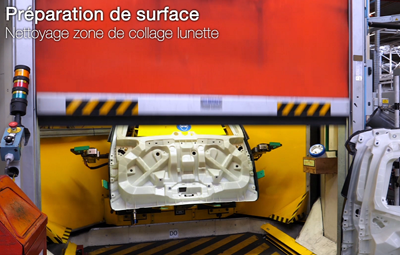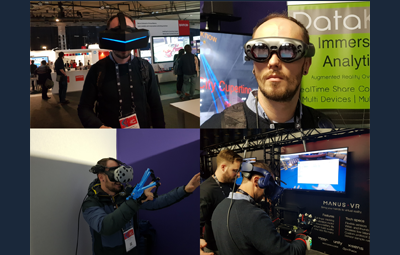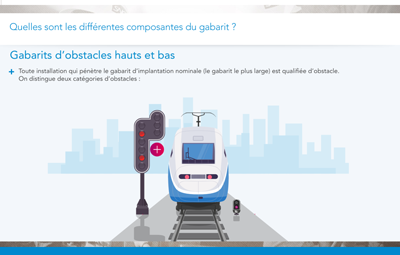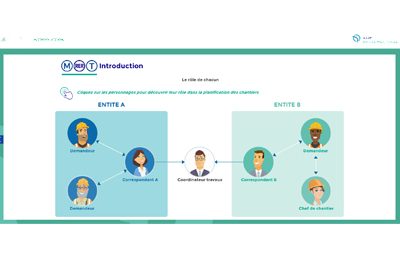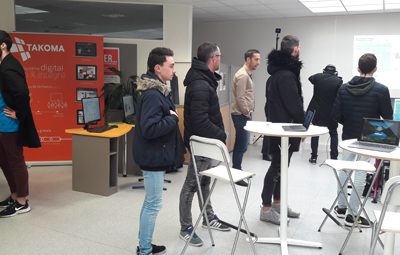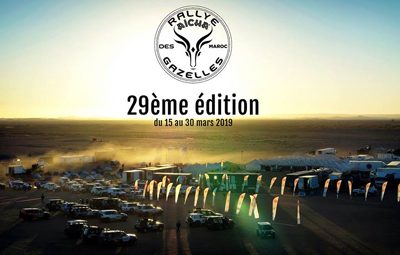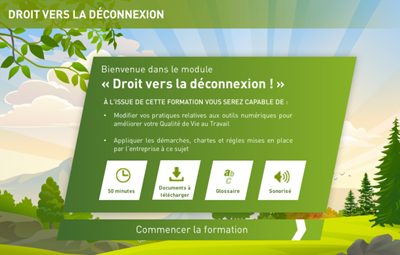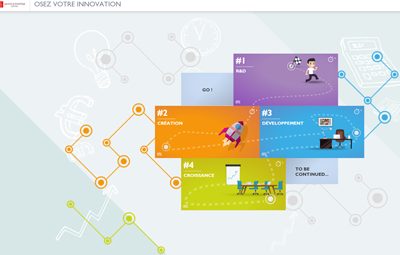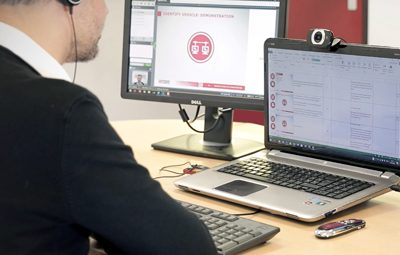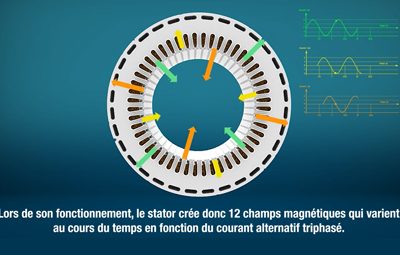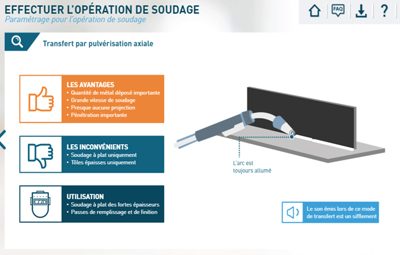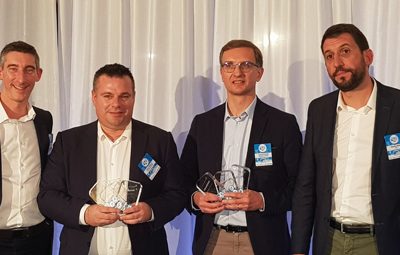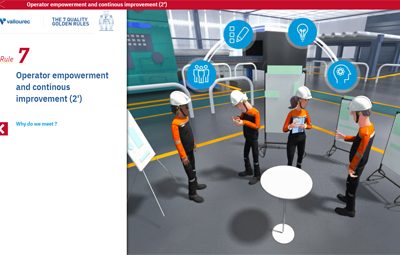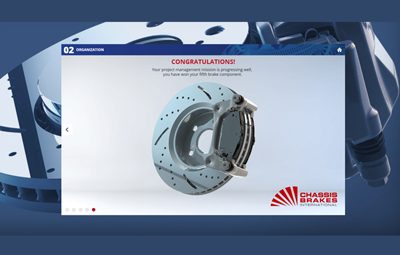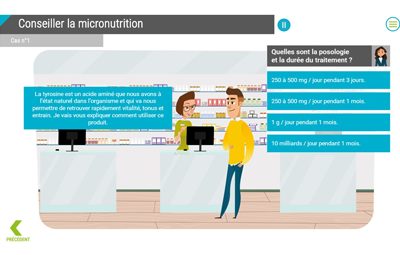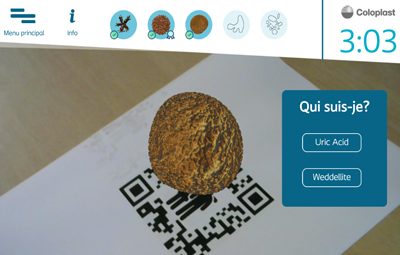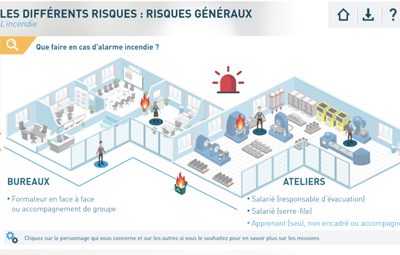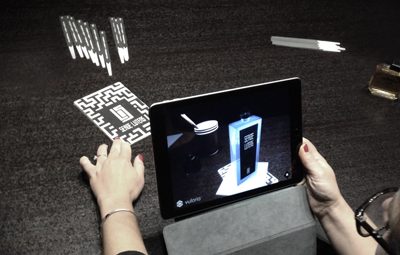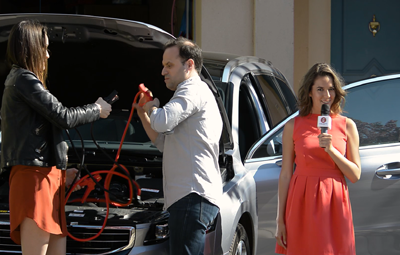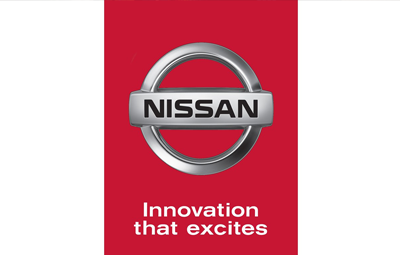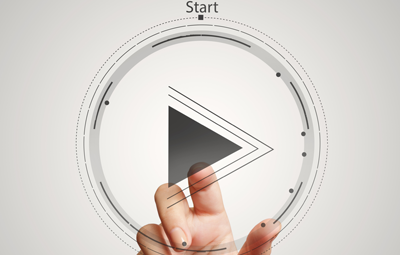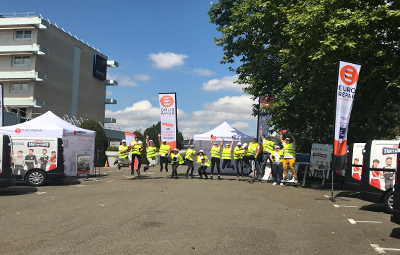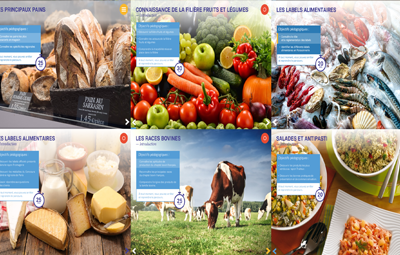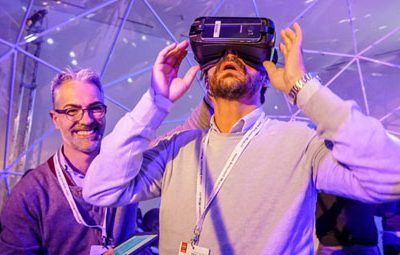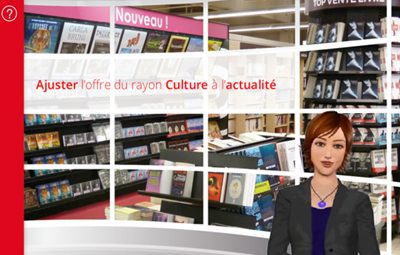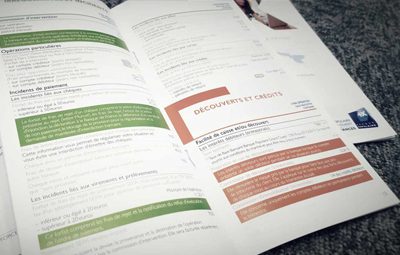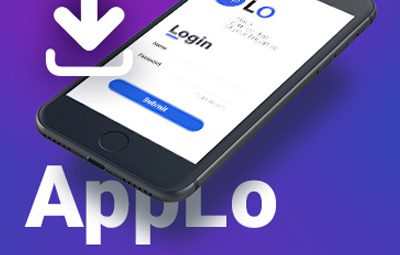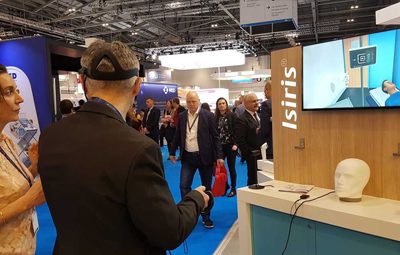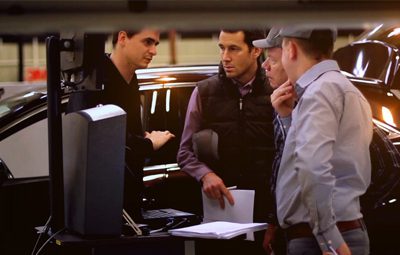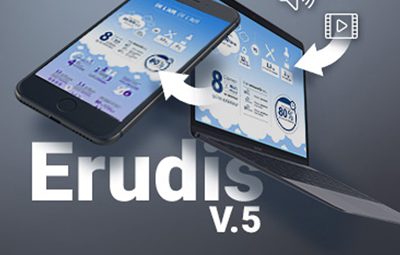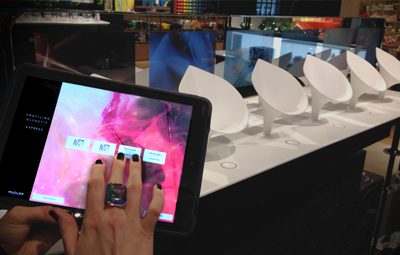News
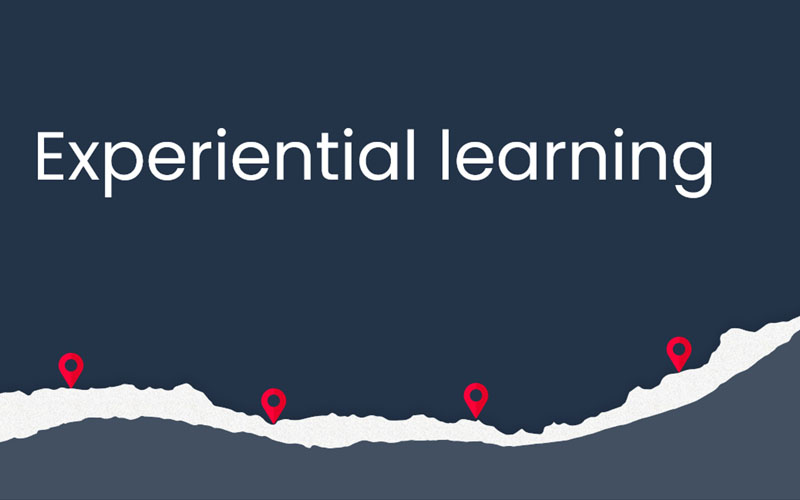
The importance of experience in training and the place of digital.
Few people have never taken an online course these days. “Micro-learning, learning-games, MOOCs, etc. are the new training media, available anywhere, anytime…
Let’s first take a step back from digital learning. Let’s put aside the “digital learning vs. face-to-face” debates and get back to the fundamental question: what is training? Whatever the method, subject, or target: it’s a moment during which knowledge is shared, experienced, and acquired.
No need to get too excited however, as this article doesn’t present THE new technology that will revolutionise the world of training, but rather highlights the paradigm shift that is taking place, towards training where experience is increasingly central.
But what is experience? According to the Larousse dictionary, experience is defined as “the practice of something, […] from which a knowledge, skill, or habit is derived; knowledge is derived from this practice”. This implies that experience is the act of experiencing something in reality and that it has an important role to play in learning.
So, do experience and digital go hand in hand? Is it possible to combine digital and experiential learning? Isn’t there a limit to experiential learning when it’s designed in a digital format?
The language of collective training
Before we go into the subject of experiential learning in more detail, let’s clear up any misunderstandings and align our understanding of the terminology that’ll be used.
In learning, there’s a distinction between theory and practice:
- Theory provides universal content (methods, definitions, best practice guides, etc.), knowledge, and know-how that are often unrelated to a particular context.
- Practice tends to develop skills and to experience them. Learning, or rather the development of new knowledge, takes place in a specific context, representative of the learner’s reality. The individualisation of learning content is a very important step in the learning and memorisation process.
When we talk about skills, we distinguish between behavioural skills, which are similar to soft skills such as human and relational qualities (communication, team spirit, emotional intelligence, etc.), and technical skills – tangible and measurable know-how such as the use of software or operating a machine.
In contrast to technical skills, behavioural skills are intangible and therefore difficult to measure, which can be a problem in training.
The paradigm shift in collective training
The maxim “Repetition internalises a concept” … is perhaps familiar to you? But have you ever wondered whether repetition needs to take place in the same way, and if the transposition of theory into practice could be the key to more effective and lasting internalisation? Indeed, human memory has different facets, different biases: visual, auditory, kinaesthetic… each of which works differently, so we can assume that mobilising several forms of memorisation makes it easier to retain information in the long term.
In training, the traditional model is referred to as “70/20/10”:
- 70% of learning achieved through experience and practice
- 20% of learning achieved through social interaction
- 10% via traditional training channels, also called formal learning
In this model, formal learning accounts for only 10% of real learning needs. Yet a study* recently showed that 80% of training budgets – in the private sector – were reserved for this 10%. The paradox is clear, there is an imbalance. *Study conducted in May 2019 among 1,500 training professionals in France, by UNOW.
In collective training in general, the trend has now been reversed. The paradigm is changing: experience precedes – and even takes precedence over – theory. Training tends to be an experience for the learner. An experience during which the learner assimilates a theoretical concept, embeds it into their reality and understands its meaning through practice.
David Kolb – psychologist, teacher and educational theorist – synthesised the work of the founding researchers of the 20th century to develop an experiential learning model. In 1939, he modelled a 4-stage learning cycle and identified 9 ways of learning through experience.
The 4 stages of his model are as follows:
- Concrete experience of an action or idea;
- Reflective observation;
- Abstract and theoretical conceptualisation;
- Active experimentation, applying the idea or action according to the initial experience.
Let’s take a simple example: learning a foreign language, English. You can learn irregular verbs by heart, memorise vocabulary lists…. Your learning of the language will not be complete or long lasting until you’ve experienced the language, and used it in direct dialogue with someone. It’s the same with learning the piano: learn, memorise, repeat music scores as diligently as you can, if you don’t touch a piano this won’t make you a virtuoso. “You have to practice” they say.
Experiential learning
So-called “experiential learning” is, by definition, “a learning process in which knowledge results from the combination of the perception of experience and its transformation” (Kolb, 1984, p. 41). (Kolb, 1984, p. 41). The learner is confronted with a concrete situation – virtual or real – and experiences, tests the knowledge and discovers through practice.

To implement experiential learning, we can infer that 2 pedagogical approaches seem relevant: the deductive approach and the inductive approach, both of which leave room for practice.

Note: both approaches are effective and should be adjusted to the training subject and the learners’ initial levels. The theory can be used initially to arouse the learners’ curiosity. Then the learner experiments with what they have learned previously. The experience will then give meaning to the training and facilitate understanding and memorisation.
Depending on the subject and target population, the integration of an experiential component into a face-to-face training course is sometimes difficult to set up. For example, a rocket ship pilot training course will require… a rocket. Quite a budget for a single training session, you might say. Similarly, for a training course about risks and safety in the environment of a nuclear power plant, it’s complicated to put the learners in a situation without seriously endangering their lives. This is where the added value of digital learning – one of our areas of expertise at Takoma – is highlighted.
Experiential learning and the opportunities offered by digital learning
Digital learning is in essence outside of reality, and is virtual. It therefore seems contradictory to link it with the concept of experience. However, digital learning offers many training advantages, whether in terms of resource savings, ease of large-scale deployment, or safety and risk prevention. But how is it implemented?
In digital learning, an experiential learning module can take two forms:
- A module built around a single experience.
- A module that integrates an experiential part into the training process.
Moreover, digital experiential learning can be implemented through several pedagogical methods (quizzes, case studies, etc.) and thanks to various more or less sophisticated technologies (2D, 3D, VR, etc.).
In terms of experiential learning, digital learning is like a chameleon: its colour might not change, but its shape, methods, and format can. The subject of the training and the learning objective will largely influence the choice of methods, format, and technology used to develop the module.
We can classify 3 sophistication levels:
Example: Experiential learning, entry level.
Experiential learning turns out to be a good solution for assimilating theoretical or regulatory content through situation scenarios/case studies.
Take an e-learning module on ethics with the following stakes:
- Become familiar with the principles of the Ethics Guide,
- Anchor the rules of conduct to a reality on the ground (give meaning and encourage memorisation)
- Ensure the application of the rules of conduct in daily professional life…
To meet the needs of this client, we developed a tailor-made module:
- Incorporating an experiential part enabling it to be firmly grounded in the field, legitimising the existence of each ethical pillar and engaging the learner in the training.
- Alternating inductive and deductive approaches to give rhythm to the experience and to reach the most diverse learner profiles.
- Using level 1 scenarios to vary the situations represented and to respect the module’s duration.
- Incorporating a gamified aspect to deliver a regulatory subject in a fun way.
Example: Experiential learning, intermediate level.
For example, for a training course on risks in a nuclear power plant, the use of digital and 3D technology will immerse learners in a virtual nuclear power plant, to experience nuclear risks, without any risk to their health. Here, 3D makes training possible on subjects relating to employee safety or requiring the use of expensive technologies.
At Takoma we have developed numerous modules which include for example, 3D for training in how to drive transport machinery (tube train, bus, etc.); technical skills; or even for acquiring product knowledge and adopting the right customer posture – behavioural skills.
Example: Experiential learning, advanced level.
At Takoma we have also used virtual reality (VR) technology to develop an e-learning module for English language learning for a class of fifth graders. By simulating real-life situations, learners are immersed in a dialogue and encouraged to exchange ideas. Immersion in a VR universe offers an experience that appeals to the senses and emotions and is anchored in the learner’s memory almost like one coming from a real experience.
Consequently, the use of digital technology helps to encourage learner commitment by removing the fear of being judged by others that could arise in a real situation. It also encourages concentration and involvement through immersion in a playful universe.
When it comes to learning, we don’t all have the same learning profile, the same memory process, and the same reality. Indeed, one person will be receptive to an inductive approach, another mostly deductive, another will be more receptive to a VR experience, while another won’t be comfortable at all with this technology and will prefer a “basic” situational scenario. So, in order to incorporate an experiential approach into digital learning, a recommendation takes shape: vary the pedagogical approaches and methods in order to reach a maximum number of learners, make the experience more dynamic and offer situations in which learners can try-out and experiment with the knowledge they have acquired, by relating it to their own reality. In this way, when engaged, learners assimilate knowledge more easily.
Digital experiential learning offers a wide range of possibilities in terms of personalising the experience. Whether in terms of choice of avatar, storytelling or gamification, the range of possibilities is infinite (within the limits of the budget allocated to the project, of course).
The limits of digital in experiential learning
Although digital technology has its place in experiential learning, there are still limits to the training experience. Indeed, depending on the training subject, digital technology is more or less suitable and makes it possible to go far in the learning process, to a certain extent.
Depending on the skill to be developed, digital offers different advantages:
- For the acquisition of knowledge and development of behavioural skills, digital experiential learning makes it possible to arouse emotion in the treatment of a theoretical subject through concrete situations, to facilitate commitment by making the link between theory and reality in the field, thereby promoting the memorisation of key concepts. In this case, the digital format can stand on its own, particularly in the context of knowledge acquisition.
- On the contrary, for the development of technical skills, digital experiential learning makes it possible to provide theory in a contextualised manner and to anchor it in the reality of the field in order to emphasise the usefulness of the training and in this way encourage commitment. Digital experiential learning is therefore a step, an initial experiment, but can never replace practical application in a real work situation.
One of the main limitations of a digital situation scenario is that there are too many hazards and factors in reality that cannot be taken into account in digital training (human hazards, weather, wear and tear of materials, etc.).
We can therefore nuance this reasoning by thinking of digital as liberation from reality and its constraints. This utopian vision of the digital world assumes that a virtual environment – a metaverse – is the new ideal world where everything is possible.
But in this case, isn’t there a risk of being disconnected from reality? These constraints are the very nature of reality. To be totally detached from them would be to detach oneself from our reality, from our world. So we might ask ourselves: what’s the point of training in an environment that isn’t our own?
In essence, digital is opposite to real. Experience is knowledge acquired through interaction with the environment. Therefore, a digital experience is an interaction that is limited to a virtual environment. Experience therefore is, in essence, limited in digital – you can only experience part of the skill, you can only engage parts of ones senses involved in the training. You experience a virtual situation but you won’t know “what it feels like in real life“.
Let’s take an example: in one of our e-learning modules, we propose to put the learner in a situation in which they need to create a food product. The learner has to follow precise rules to create a compliant product. Although the ingredients, the production line setting and the avatars are real, the experience is limited because it’s virtual. The learner knows that he can make a mistake, that it will not affect reality. The risk is that they will carry out the experiment with much less diligence than if they were in a real situation, that they will not be aware of the risks involved if they don’t follow the rules. This infinite margin of error is one of the interesting aspects of digital experiential learning and also represents one of the limits of this learning.
Consequently, digital experiential learning encounters its limits at its core: digital. The learning experience, strictly speaking, will therefore only achieve its goal via a transition to action.
Experiential learning and digital: it’s all about balance.
“What we have to learn, we learn by doing”. Aristotle.
In conclusion, digital experiential learning is one of the key stages of the learning journey but doesn’t represent a complete training journey on its own.
You’ll probably agree that not being substitutable doesn’t mean not being complementary. Indeed, coupled with concrete application in a work situation (via on-site workshops for example), experiential learning facilitates the understanding of theoretical concepts and the assimilation of technical processes.
Indeed, it’s all a question of balance. Digital technology provides experiential learning with a great deal of freedom, but it’s important to identify the point at which it’s necessary to confront reality.
This is where the concept of blended learning (part face-to-face training/part e-learning) comes in as the solution for a complete training course. As the theory and initial experiments can be carried out via digital means, the learner ends the training with a workshop in a real-life situation – or vice versa.
Today, blended learning appears to be the ultimate in digital professional training, because the human/real cannot entirely replace digital. In training, as elsewhere, you have to be ambitious while keeping your feet on the ground.
David A. Kolb states that “The experiential learning process has two purposes. One is to learn more about a particular subject and the other is to learn more about your own learning process.”
Another reflection then opens up around experiential learning. If experience allows you to acquire skills on a new subject in a more informed and sustainable way, it also allows you to learn more about yourself. Experiment and you will learn more (1) about the subject and (2) about your learning profile. Test several techniques, several approaches to find out what works best for you, to understand how you, as an individual, learn.

